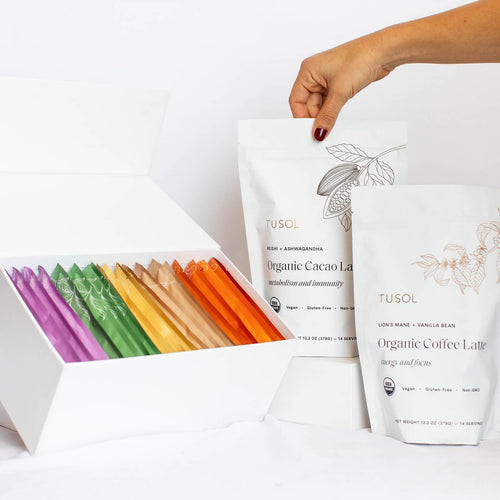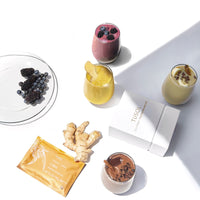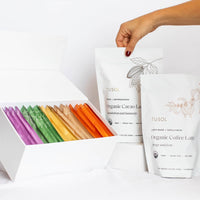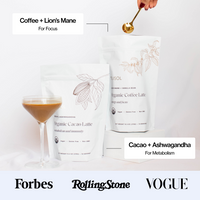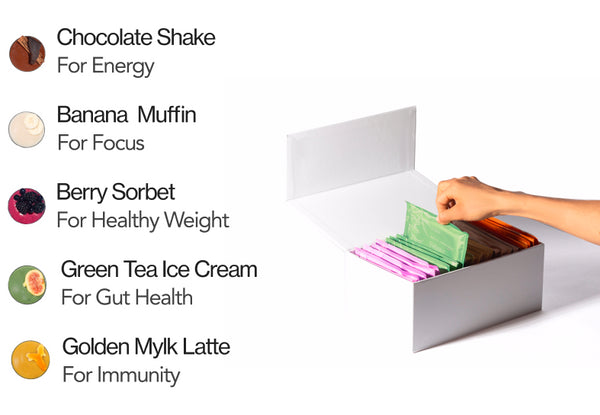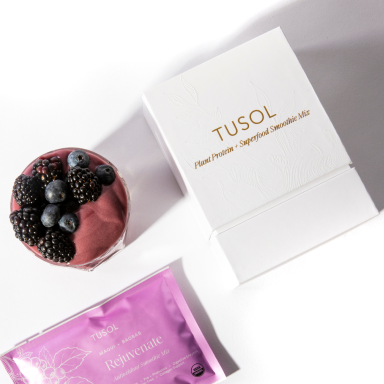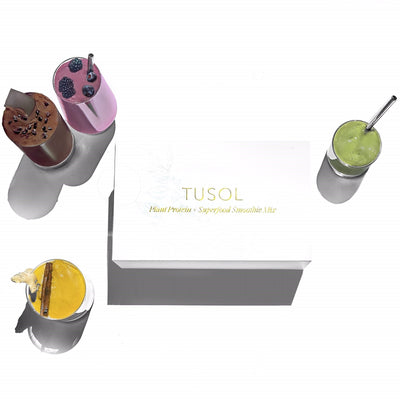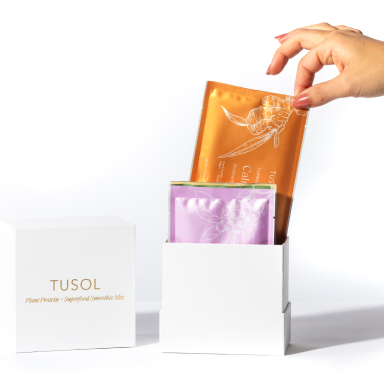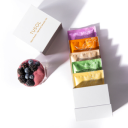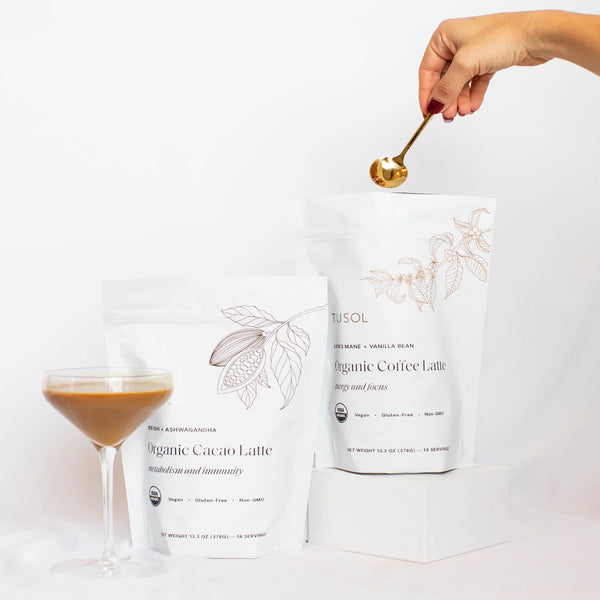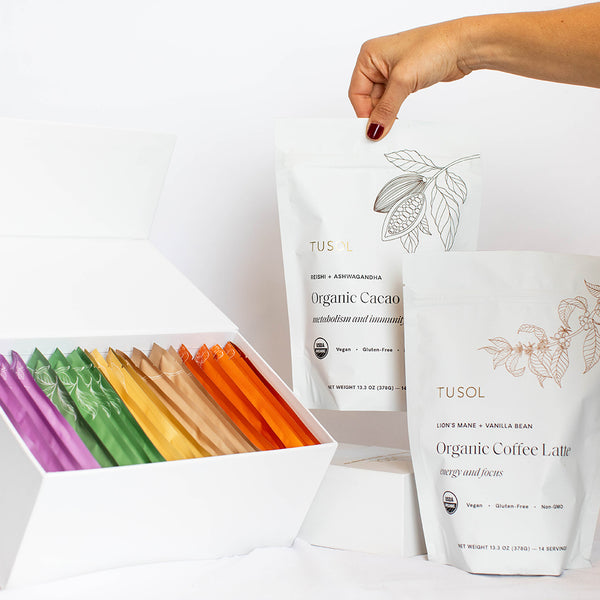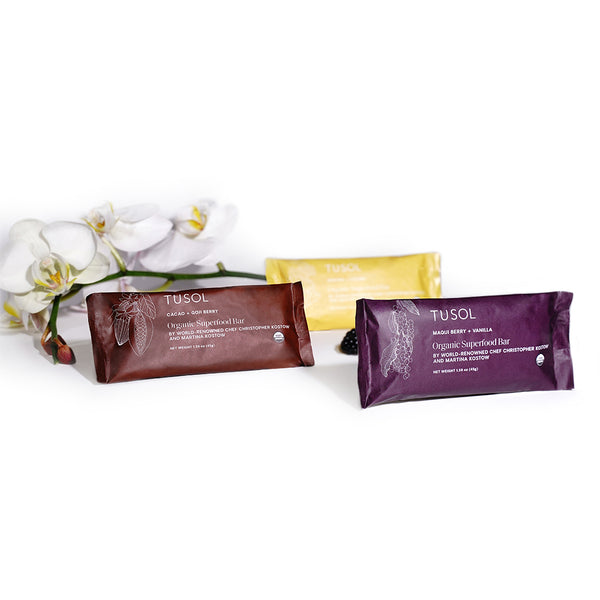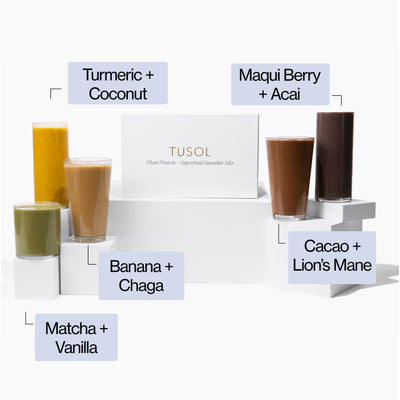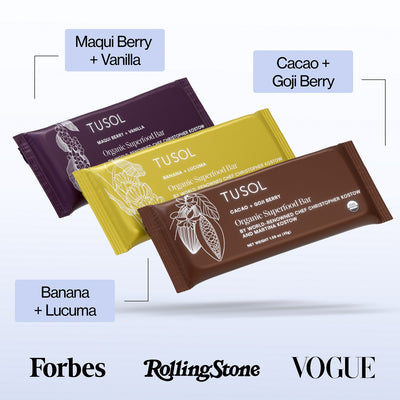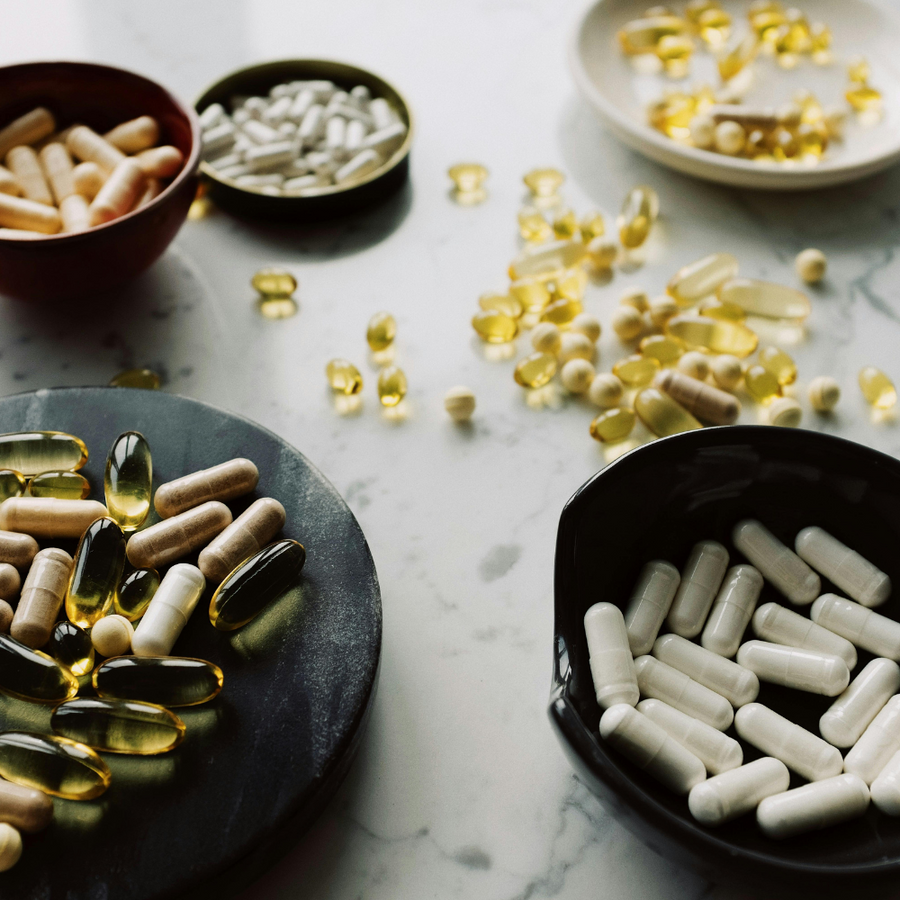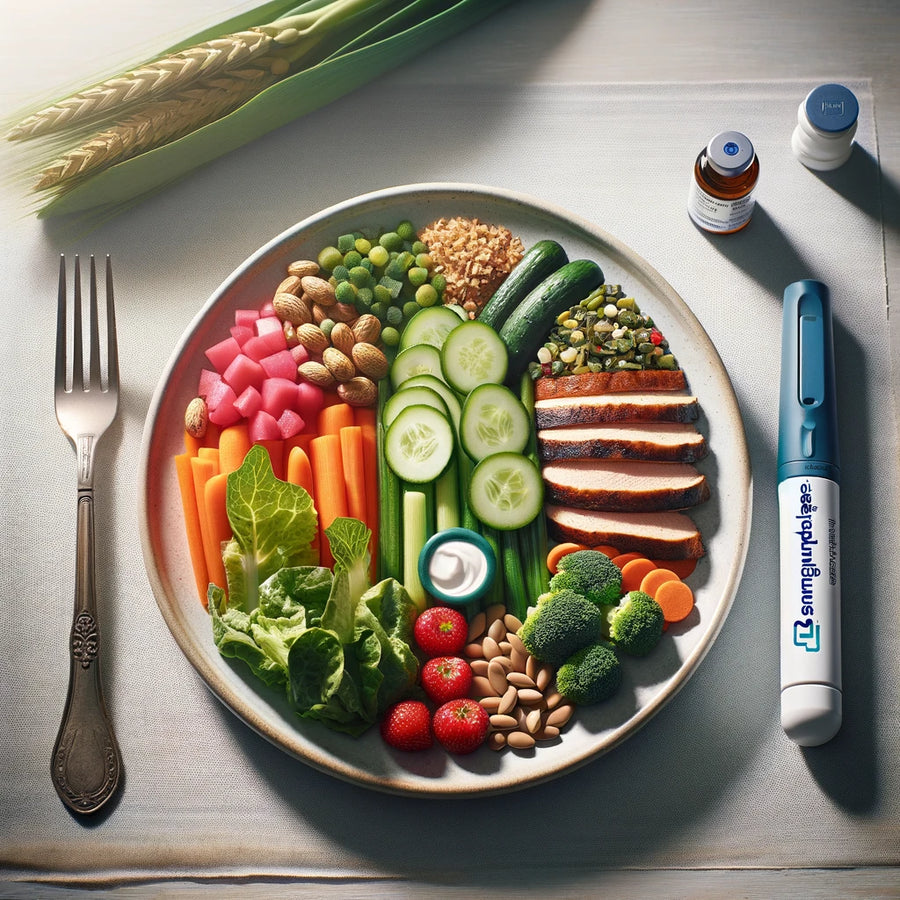Why glucose has been demonized
Yes, there is a lot of sugar in the modern Western diet. However, this doesn’t mean you need to (or should) eliminate sugar and carbs completely from your diet. And perhaps this is why sugar has been placed upon the chopping block as dietary enemy number one. You’ll even hear some people refer to sugar as ‘poison.’ It’s blamed for an increased risk of heart disease, diabetes, obesity, and so much more. Yet, we then turn a blind eye to everything else that the food industry throws into the food we eat. We ignore the additives, the chemicals, the high amounts of polyunsaturated fats, and more. Instead, we point the finger at sugar and demand less of it. There’s been numerous documentaries and talks pinpointing sugar as the bad guy. So, the food industry complies by offering up artificial sweeteners, which only confuse your body and cause further dysfunction. And to clarify: Sugar is the body’s preferred energy source (more on this in a second). But it’s always best to consume it within nutrient-dense foods, such as fruits or honey. Pre-packaged and processed foods contain various chemicals and compounds that your body doesn’t need. These chemicals and compounds can disrupt your body function, and they don’t contain any real nutrients.Glucose and the body’s preferred source of energy
Every single cell in your body uses glucose to create energy and function as they should. If you don’t consume glucose, your body uses up the glycogen stored in the liver for glucose creation. Once this is used up, it turns to muscle or gland tissue (yes, it chooses these tissues over fat), which can result in various health problems. In other words, consuming sugar is actually doing your body a favor. It saves it from having to use inefficient means to make glucose, as well as protects your body from basically eating itself. Using glucose you consume in your diet is the easiest way for your body to obtain the energy it needs to function smoothly. As a result, you experience better health and more stable energy throughout your day - with also potentially a lower risk of developing diabetes or heart disease.How stress hormones play a role on glucose
A major problem with society today is that many individuals are chronically stressed out. Stress hormones block insulin, and this can impact your body’s ability to use glucose. In a healthy body, when you consume something sweet, your pancreas starts pumping out insulin. The sugar then gets absorbed via your digestive system. It pours into the blood. This is where insulin comes into play. Insulin signals to your body’s cells to let glucose in. These cells take in the glucose and use it for energy, which allows them to function properly. In turn, this also stabilizes blood sugar. But when you’re stressed, your cells can’t use glucose to make energy. It blocks the use of oxygen. It also blocks insulin, which is an attempt to prevent the storage of glucose. Yet, this only creates problems, such as dysfunctions that lead to digestive issues, low moods, sleep issues, weight gain, and more. In one article, Dr. Ray Peat states,"In natural stress, decreased availability of oxygen or nutrients is often the key problem, and many poisons can produce similar interference with energy production, for example, cyanide or carbon monoxide, which block the use of oxygen, or ethanol, which inhibits the oxidation of sugars, fats, and amino acids (Shelmet, et al., 1988)."
Ultimately, your stress levels play a major role in your body’s ability to use glucose.Free radicals and glucose metabolism
Surprisingly, your body naturally produces free radicals through glucose metabolism. This isn’t necessarily a bad thing. The body has natural mechanisms to balance this out. Further, antioxidants help combat free radicals, preventing damage from happening. Yet, researchers have associated excess sugar in the blood with increased free radicals. However, this excess sugar can be attributed to the body’s cells’ inability to take in sugar or use sugar. Ultimately, sugar isn’t really the problem with increased free radicals. It’s usually, as Dr. Ray Peat stated above, another dysfunction at play, such as decreased oxygen or nutrients or blocking of insulin. And this gives way to another point for team sugar.Mitochondrial dysfunction and diabetes
Experts have associated diabetes and obesity with cellular energy deficiencies, which result from the inability to metabolize sugar properly. In fact, individuals with diabetes or who are obese have high amounts of extracellular glucose. Yet, intracellular glucose is low. In other words, the body’s cells in these individuals are starving. They want energy but something is happening where they can’t obtain the right tools to make it. In other words, glucose isn’t being properly delivered to the cell. This means the cell has become insulin resistant."This isn’t any fault of glucose. Usually, it’s the inflammation of these cells that halt the intake and regulation of glucose. In fact, diabetes is widely attributed to mitochondrial dysfunction."
When inflammation is present and insulin resistance is a problem, a glucose transporter, GLUT 4, is found in low amounts. Your body is literally lacking what it needs to properly use glucose. This may come in the form of nutritional deficiencies or something else. And this significantly interferes with the powerhouses of each cell: the mitochondria. They can’t perform their function properly (meaning they can’t make energy), which means you feel sluggish and you crave sugar."All in all, sugar cravings are real. There is a reason they are happening. And the more stressed out you get and the more inflamed your body becomes, the more glucose your body and brain require to function."
But here’s an interesting fact: Fructose bypasses insulin to get into the cell. This is why many individuals with diabetes are recommended to consume fructose foods, such as raw honey. Raw honey contains a mixture of glucose and a higher percentage of fructose with a whopping dose of antioxidants. It’s also high on the medicinal compound propolis, and anti-inflammatory rich bee pollen. On the other hand, diabetic individuals also have to tread carefully. Pasteurized honey may contain higher levels of glucose and other types of honey may also contain harmful artificial ingredients. On the matter of honey, Dr. Ray Peat states,“Honey, which contains free fructose and free glucose, lowers CRP (C-Reactive Protein) and homocysteine, as well as triglycerides, glucose, and cholesterol, while it increased insulin more than sucrose did (Al-Waili, 2004). Hypoglycemia intensifies inflammatory reactions, and insulin can reduce inflammation if sugar is available. Obesity, like diabetes, seems to involve a cellular energy deficiency, resulting from the inability to metabolize sugar.”
Interestingly, this has led some experts to suggest that diabetic individuals supplement with fructose in the diet. Honey, itself, is considered an anti-diabetic agent, which indicates it may be very useful for those with diabetes. Dissimilar to glucose, fructose doesn’t cause the release of insulin. Again, this may indicate a path toward healing and treating diabetes. However, more research is needed. But it is an interesting thought!Oxidative stress and glucose metabolism
Various stressors and poisons interfere with oxygen and cause large amounts of free radicals. This can cause damage throughout the body and its systems. Interestingly, ethyl alcohol is one of the most common toxic substances that has this effect. It creates oxidative damage by causing excess electrons to accumulate in the cell. This causes the cell to become unstable. As mentioned, stress can also lead to similar issues. It disrupts glucose metabolism and prevents the cells from obtaining the energy they need to function correctly."Interestingly, studies suggest that insulin resistance happens in an effort to protect the cell from oxidative stress or damage."
Another similar theory indicates that oxidative stress may actually change the intracellular signaling pathway, resulting in insulin resistance. In other words, widespread inflammation or oxidative stress throughout the body may lead to diabetes, heart disease, and other chronic health conditions. What is this oxidative stress caused by? Usually, it’s from unhealthy dietary and movement habits.The demand for glucose when there is chronic stress and inflammation
Chronic stress and inflammation increase your body’s demand for glucose - hence why you likely crave sugar during stressful times. The brain frequently has an increased need for energy, which primarily comes from glucose. Usually, stress squashes your energy. It drains you. So, undeniably, you need more fuel to increase energy production. And carbs or sugar supplies a quick and efficient source. The problem arises when you’re getting this sugar from unhealthy sources, such as pre-packaged and processed foods. So, where should you be getting your sugar from? Keep reading to find out!The right foods to eat when there are stress and sugar cravings
Here’s a quick list of healthy foods to eat when stressed and when you’re craving sugar:- Raw Honey
- Whole Fruit
- Whole Fruit Juice
- Grass-fed raw milk (raw milk contains lactase the enzyme needed to breakdown lactose)
- Starches
- Bread
- Food high in polyunsaturated fats
- Refined vegetable oils
